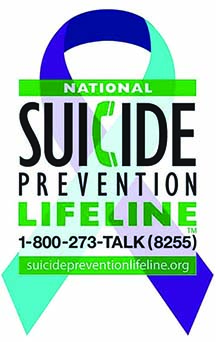It isn’t always easy to differentiate between normal teenage growing pains and depression. Recognize the signs and symptoms and best help your child.
Teen years can be extremely tough and depression affects teenagers far more often than many of us realize. It’s estimated that one in five adolescents from all walks of life will suffer from depression at some point during their teen years. However, while depression is highly treatable, most depressed teens never receive help. Teen depression goes beyond moodiness. It’s a serious health problem that impacts every aspect of a teen’s life. Fortunately, it’s treatable and parents can help. Your love, guidance, and support can go a long way toward helping your teen overcome depression and get their life back on track.
While occasional bad moods or acting out is to be expected during the teenage years, depression is something different. The negative effects of teenage depression go far beyond a melancholy mood. Depression can destroy the essence of your teen’s personality, causing an overwhelming sense of sadness, despair, or anger.
Many rebellious and unhealthy behaviors or attitudes in teenagers can be indications of depression. The following are some the ways in which teens “act out” in an attempt to cope with their emotional pain:
Persistent negative mood. Frequent crying due to an overwhelming sense of hopelessness. Teens with depression may not necessarily appear sad, instead, irritability, anger, and agitation may be prominent symptoms.
Problems at school. Depression can cause low energy and concentration difficulties. At school, this may lead to poor attendance, a drop in grades, or frustration with schoolwork in a formerly good student.
Loss of interest in activities. Outside of school, your teen shows less enthusiasm for their favorite hobbies. They may quit a sports team or hobby, or withdraw from family and friends.
Running away. Many depressed teens run away from home or talk about running away. Such attempts are usually a cry for help.
Drug and alcohol abuse. Teens may use alcohol or drugs in an attempt to self-medicate their depression, and substance use only makes things worse.
Low self-esteem. Depression can trigger and intensify feelings of ugliness, shame, failure, and unworthiness.
Smartphone addiction. Teens may go online to escape their problems, but excessive smartphone and Internet use only increases their isolation, making them more depressed.
Reckless behavior. Depressed teens may engage in dangerous or high-risk behaviors, such as reckless driving, binge drinking, and unsafe sex.
Violence. Some depressed teens—usually boys who are the victims of bullying—can become aggressive and violent.
Sudden changes in sleep and diet. Depressed teens may spend more time sleeping in bed than usual, or conversely, experience insomnia. You may also notice that your teen is eating more or less than normal.
While depression can cause tremendous pain for your teen—and disrupt everyday family life—there are plenty of things you can do to help your child start to feel better. The first step is to learn what teen depression looks like and what to do if you spot the warning signs.
Depression or teenage “growing pains”?
If you’re unsure if your teen is depressed or just “being a teenager,” consider how long the symptoms have been going on, how severe they are, and how different your teen is acting from their usual self. Seek professional help.
Suicide warning signs in depressed teens
Seriously depressed teens, especially those who also abuse alcohol or drugs, often think about, speak of, or make attempts at suicide—and an alarming and increasing number are successful. Take any suicidal thoughts or behaviors very seriously — this is a cry for help.
Moving Beyond Cravings
The effects of cravings can be overwhelming at times, and you may find yourself coming up with all kinds of excuses as to why you should start using again. It is so important to develop healthy coping skills to assist in combating these cravings and avoiding relapse. A few definitions are:
⦁ A state where an individual is focused on acquiring a substance.
⦁ The desire to use a substance given the opportunity.
⦁ The psychological desire for the positive effects of a drug.
Learn to identify your triggers
The words ‘craving’ and ‘trigger’ are often used in the same vein, though they carry different meanings. A craving, is the actual urge or physical compulsion that occurs to make a person strongly desire something. A trigger, on the other hand, is anything an addicted person’s brain associated with getting “high” that may cause cravings or lead to relapse. Triggers can pop up anytime, without warning. They could be stress related to work, family and even depression and anxiety. A trigger could be just about anything that the person associated with using the drug or performing the activity that is the subject of their addiction. Learn your triggers… then avoid them at all costs
Recognize. The first step in recovery is to recognize and understand there is an addiction. This is the first step in managing triggers.
Avoid: Once triggers are identified, next is finding out how to avoid or remove them.
Cope: Lastly, once you figure out how to avoid triggers, it’s essential to find ways to cope with any negative emotions triggers may bring out. These can cause relapse and it’s important to know how to cope with them in order to stay sober during your addiction recovery.
Build a strong support group
Having a support system to lean on is one of the biggest contributing factors to success in recovery. A strong support system greatly reduces your chances of giving in to triggers and relapsing. It really helps to have at least one person who you know is in your corner, rooting for you and depending on you to stay on track. Anyone from your family to your friends to your significant other to your peer support group can hold you accountable — the more the merrier. Through recovery, it’s important to become aware of the fact that your addiction doesn’t just affect you, it has a negative impact on everyone who loves and cares about you. If you are like most people who have suffered from addiction, life before sobriety probably looked pretty grim. Write down all of the wonderful things you have been blessed with as a direct result of your sobriety. You may be surprised how many things come to mind when you are actively thinking in a positive way!
(Source: www.scottsdalerecovery.com)



































